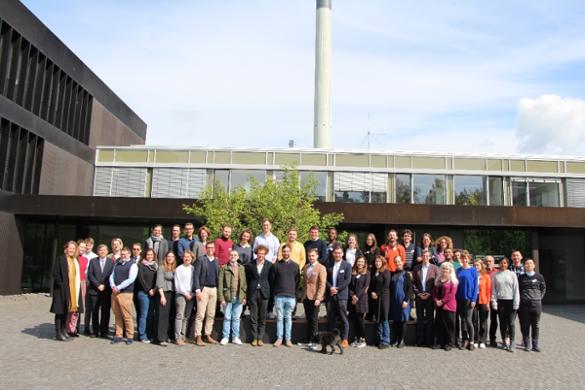From Madison to Trump - US Constitutional Law in the Light of Current Developments with Professor Daniel Halberstam
From 24th -27th April 2023, the MPIL hosted this year’s Master Class on “The Construction and De(con)struction of Rights in America: Practice and Anti-Practice from Madison to Trump” with Professor Daniel Halberstam. Professor Halberstam is Eric Stein Collegiate Professor of Public Law and U.S. Constitutional Law and Director of the European Legal Studies Program's at the University of Michigan
Professor Halberstam's challenging program guided the fifty selected Master Class participants through various landmark decisions by the U.S. Supreme Court from the founding of the United States to the present day using the Socratic method. In doing so, Professor Halberstam provided the participants with five tools for interpreting U.S. constitutional norms, particularly the fundamental rights provisions of the Bill of Rights: (1) originalism and various types of literal interpretation, (2) history, (3) systematics and the interplay of the various norms, (4) precedent, and finally (5) specific (social) policy considerations.
The opening session focused on the basic constitutional principles developed in the first decades of the newly formed state, up to the post-Civil War phase of the Reconstruction of the Republic. The second session the following day, entitled “Canon and Anti-Canon”, discussed numerous historical decisions, such as Brown v. Board of Education (1954), which marked the end of legal “segregation” in the United States, and Roe v. Wade (1973), in which the Supreme Court recognized a constitutional right to abortion through a progressive interpretation of the right to privacy. The third session addressed “The Modern Construction of Rights” and focused on decisions under Chief Justice Earl Warren (1953-1969) and the recognition and limits of various fundamental rights, such as the right to privacy, political rights, equality rights, and human dignity, and how they were enshrined by the justices in the U.S. Constitution of 1791. A final session, entitled “Abortion, Guns, Politics,” discussed current issues and, in particular, recent U.S. Supreme Court decisions from the last decades.
Lively discussions were held in all sessions and the opportunity to discuss court decisions and texts was successfully used until the last minute. A walk along the Heidelberg Philosophers' Path, which was integrated into the program, also offered participants the opportunity to engage in an exchange with Professor Halberstam and the other academics beyond the course program.
Complementing the Master Class program, a public event and discussion between Professor Halberstam and Professor Christoph Möllers from the HU Berlin took place on the final evening at the German-American Institute (DAI), in which the two renowned constitutional lawyers debated the provocative question: Is the American constitutional judiciary bankrupt?
Mareike Ronellenfitsch



